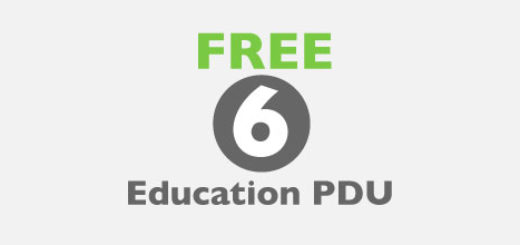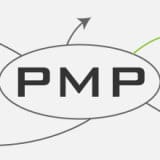PMP vs CAPM: How is PMP Different from CAPM?

Both the Project Management Professional (PMP) Certification Exam and the Certified Associate in Project Management (CAPM®) Certification Exam are created and administrated by the Project Management Institute (PMI) in recognition of the knowledge of the holders in the field of project management. This post will provide an overview of the differences and similarities between PMP and CAPM® to help aspirants to decide which certification they would pursue.
Article Highlights
What is CAPM®?
The Certified Associate in Project Management (CAPM®) Certification Exam is introduced by the Project Management Institute (PMI) in 2003 as an entry level certification for project management practitioners and students. The CAPM® Exam syllabus is largely based on the project management publication by PMI – A Guide of Project Management Body of Knowledge (PMBOK® Guide), currently in the 5th edition (published in January 2013).
The minimal requirements for a candidate to be eligible for the CAPM® Exam are:
A secondary diploma (high school or the global equivalent)
AND
– At least 1,500 hours experience OR
– 23 hours of project management education
The CAPM® exam consists of 150 multiple choice questions to be answered in 3 hours. Candidates are required to pick a correct answer from among 4 choices for each question. The CAPM® exam is generally considered to be much less difficult than the PMP exam. Candidates will be able to pass the CAPM® exam by studying the PMBOK® Guide only.
By taking and passing the CAPM® Certification exam, holders will be able to demonstration their dedication in the field of project management. They will also be able to “pre-study” for the PMP exam as the PMP exam is also partly based on the PMBOK® Guide.
The CAPM® exam costs $225 / $300 for PMI members / non-PMI members. The CAPM® Certification credential is valid for only 5 years and the only way to renew the CAPM® credential is to take the CAPM® exam again. There is no PDU requirements for CAPM® holders.
Read here for detailed CAPM® Certification cost and study resources.
What is PMP?
The Project Management Professional (PMP) Certification Exam is also administrated by the Project Management Institute (PMI) in 1984. The PMP credential is a very popular for project managers and practitioners in the US (where PMP originates) and the Asia. The PMP Exam syllabus is based on the PMBOK® Guide 5th edition together with a list of project management skills and knowledge as outlined in the PMP Examination Content Outline.
The minimal requirements for a candidate to be eligible for the PMP Exam are:
For secondary degree holders:
- Minimum five years/60 months unique non-overlapping professional project management experience during which at least 7,500 hours were spent leading and directing the project
- 35 contact hours of formal education
For four year degree holders or above:
- Minimum three years/36 months unique non-overlapping professional project management experience during which at least 4,500 hours were spent leading and directing the project
- 35 contact hours of formal education
This exam is generally considered as a difficult exam. It consists of 200 multiple choice questions to be answered in 4 hours. Candidates are required to pick a correct answer from among 4 choices for each question. Candidates will need to answer the questions based on the knowledge gained by studying the PMBOK® Guide as well as their professional experience.
PMP Certification holders can demonstrate competence in leading and directing project teams to successfully carry out projects. Many jobs in the field of project management require the candidate to be PMP Certification holders.
Comparison between CAPM® and PMP
The table below provides a brief comparison between PMP and CAPM®:
| Project Management Professional (PMP) | Certified Associate in Project Management (CAPM®) | |
| Year of introduction | 1984 | 2003 |
| Official reference book | A Guide to the Project Management Body of Knowledge (PMBOK® Guide) 5th Edition published by PMI | |
| Exam questions | 200 multiple choice questions (25 are pre-test questions) |
150 multiple choice questions (15 are pre-test questions) |
| Exam time | 4 hours | 3 hours |
| Eligibility requirements | For secondary degree holders:
For four year degree holders or above:
|
A secondary diploma (high school or the global equivalent)AND
– At least 1,500 hours experience OR |
| Exam fee (computer-based test) | $405 for PMI members $555 for non-PMI members |
$225 for PMI members $300 for non-PMI members |
| Credential validity period | 3 years | 5 years |
| Re-certification | Accumulate 60 PDUs and apply for re-certification | Retake the CAPM® exam |
The CAPM® Certification Exam is based on the knowledge of the PMBOK® Guide. Candidates will be able to pass the exam if they have studied the PMBOK® Guide well by learning all the fundamental knowledge, terminology and processes of effective project management as outlined in the PMBOK® Guide.
However, the PMP Certification Exam experience based. In addition to the knowledge contained in the PMBOK® Guide, PMP candidates will need to apply what they have learned in their working experience as project managers to ask the exam questions correctly. Many on the exam questions on the PMP exam are situational. This means that the questions will ask the exam candidates what are the best courses of actions to do next when they encounter a certain situation.
PMI deliberately tries to distinguish between the two certifications – the CAPM® Certification exam for project management students or project management practitioners will little experience while the PMP Certification exam is a professional examination aiming to act as a proof for the knowledge, skills as well as the experience for seasoned project managers (though PMI does not require the exam candidates to carry the project manager title in their daily work).
Which to get: CAPM® or PMP?
Since the PMP is a higher level and more prestige certification for project management practitioners, if one could meet the minimum requirements for the project management job experience as well as the project management education, it is generally highly advisable to take the PMP Certification Exam instead of the CAPM® Certification Exam.
But if you lack the experience to be eligible for the CAPM® exam and / or confidence to pass the PMP exam in first try and would like to earn some PMI exam experience, the CAPM® Certification Exam is a good choice.
Better still, the exam prep materials and resources for both can be the same. That means, the exam prep books and courses you purchased can usually be used for both Certification exams!
If I am yet to qualify for the PMP Exam, is CAPM® worthwhile to try?
Sure, by preparing and taking the CAPM® Certification Exam, Aspirants will have an edge to passing the PMP Certification Exam by:
- having already read and understood the PMBOK® Guide
- having the experience of taking PMI Exams (which is very useful for psychological preparation for the PMP Exam) — be familiar with the exam format and requirements
- having tried various CAPM® and PMP Exam prep resources
- having gathered enough Contact Hours for PMP Application
Recommended Exam Prep Resources
CAPM® Certification
- CAPM® Exam Simulator — my review of the new CAPM® Exam Simulator which comes with 750 quality CAPM® mock exams
- PM PrepCast™ — my first-hand review of the online CAPM® / PMP Certification online training course with up to 35 hours of project management education certificate (can be used both for CAPM® and PMP Exam Prep)
PMP Certification
- PM Exam Simulator — my review of the PM Exam Simulator 2.0 which comes with 1800 quality PMP mock exams
- PM PrepCast™ — my first-hand review of the online CAPM® / PMP Certification online training course with up to 35 hours of project management education certificate
Wish you PMP and CAPM® Success!
Most Popular PMP Certification Exam Articles
- My Exam Prep Tips and Free Resources (I got 4P and 1 MP)
- How to Get 35 Contact Hours Fast and Easy?
- Detailed Comparision of online PMP Courses
- Over 1000+ FREE Quality Mock Exam / Practice Questions
- A FREE Guide to Formulas and Calculation (with explanation and sample questions)
- 47 Commonly Confused Terms with detailed explanation




 Hi, my name is Edward Chung, PMP, PMI-ACP®, ITIL® Foundation. Like most of us, I am a working professional pursuing career advancements through Certifications. As I am having a full-time job and a family with 3 kids, I need to pursue professional certifications in the most effective way (i.e. with the least amount of time). I share my exam tips here in the hope of helping fellow Certification aspirants!
Hi, my name is Edward Chung, PMP, PMI-ACP®, ITIL® Foundation. Like most of us, I am a working professional pursuing career advancements through Certifications. As I am having a full-time job and a family with 3 kids, I need to pursue professional certifications in the most effective way (i.e. with the least amount of time). I share my exam tips here in the hope of helping fellow Certification aspirants!






Mr. Chung,
Thank you for your information. I’m a retired Navy veteran that recently earned my BS in business administration. At no point in my education was I ever exposed to the notion that certifications rather than degrees were what employers were primarily interested in. I got to discover that when I couldn’t get hired with my degree following graduation. How does one meet the necessary EXPERIENCE requirements of the CAPM and PMP if no one will hire you for your lack of experience and certifications? I’ve got years of experience in managing educational programs in the military. How do I translate that to civilian? Thank you for taking the time to respond.
Hi Erik,
Yes, it is really a dilemma that the PMP Exam requires one to have actual working project management experience in order to qualify for the exam. But please note that PMI does not require one to be the project manager, you just need to assist or work in the project but take up some project management responsibilities and this would be fine! Wish you PMP success!
Hi Edward,
First of all, thanks for putting a very detailed comparison table between CAPM and PMP. The table is really informative.
I would like to ask you a question. How would you rate IAPM (Certified Agile Project Manager- https://www.iapm.net/de/zertifizierung/zertifizierungsgrade/certified-agile-project-manager-iapm/ ) and CAPM? Which one would be a better option if would like to change my Career from ‘Testing’ to Project Management?
Many thanks in advance!
Sorry, CAPM and IAPM are for different project management methodology. It is difficult to compare them. Moreover, CAPM is administered by PMI which is a prestige organization around the world. Maybe you can ask your colleagues/friends which certification is more respected in the project management profession in your area.
Wish you success!
Hi Edward,
I found your website after searching for resources in the web about project management certification. I have been thinking of getting certification on project management for quite some time. I have done some work on project management (for about 3 years), though I haven’t taken any formal courses or certification. I just learned mostly through self-studying and practical experience and training that I gained from my work, supervisors, and peers. Just to give you a background on myself, I have an undergraduate degree in Economics and have worked for a consulting firm managing development-related projects, mostly doing coordination, communications, and research. I also have some background on finance and marketing having previously worked for in a bank (for 2 years).
My question is, given my background, what kind of certification do you recommend? A CAPM or PMP certification? I would also check the requirements for both exams but I would sincerely appreciate a quick advice from someone who has experience in getting these certifications. Thank you in advance for your advice.
I would recommend you to get the formal education (either in classrooms or as online courses) of project management and wait until you get enough working experience to apply for the PMP Exam. The PMP Exam offers more values for its holders.
Wish you PMP success!
Thanks for a great article,
I have one query, If I take CAPM certification, after how many days/years i can take PMP Certification. Is there are any limit?
Hi Mohammad,
There is no set limit. You can take the PMP Exam anytime you have fulfilled the exam eligibility requirements.
Wish you CAPM and PMP success!
Hi Edward,
Great post! I just had a questions and hope you can help. I’m interested in going for a CAPM. I’m currently work at a consulting firm in marketing and spend most of my time coordinating marketing projects. I enjoy the project management aspects my job. I’m just wondering if CAPM certificates are valuable in the marketing field? It feels like most project managers are people in IT, Engineering, and Operations. Just wondering if you met many people in marketing and if they received a good ROI from their certificate?
Sorry as I am not in the marketing field, my views expressed here may be biased. But I would say if you are planning to work as a project manager, CAPM and better PMP are very useful. However, for the marketing field, it seems that the knowledge gained from your studies may benefit your work, but not to the extent of working in a company practising project management methodologies as advocated by PMI.
Anyway, wish you success!
Hi Edward,
Thanks for this amazing information. I have been working in projects department as an interior designer for 4 years in UAE and planning to take my career a notch higher. As far as my education background goes I am an MBA – Finance, and HR and have acquired a certification in interior designing. I am confused whether to take up CAPM to get my basics right or to directly go with PMP Certification. I plan to start the exam prep in January 2018. Please let me know, what do you think. Thanks in advance for your invaluable advice.
Considering your educational background as well as your experience, I would highly suggest you to go directly for the PMP Exam! I am sure you have the capacity to learn the PMBOK Guide knowledge on your own and get PMP certified.
Wish you PMP success!
Thank you so much. This has indeed cleared my confusion.
I’ve been in education now for 10 years; math teacher to be exact. I’m looking to change professions and hoping getting my PM certification will help get my foot in the door. I’m looking into taking a 4 day boot camp to increase my success rate on the exam.
Do you think this is a good option for me?
Do you want to take the PMP or CAPM Exam? Boot camps are a great option but they are quite expensive indeed.
Wish you success!
Hi Edward.
I am glad i stumbled upon your website. I have a few inquiries and i will be glad if they are attended to. Firstly to give you a short background, I am 27 years old, with a Masters degree in Architecture and additionally have close to 3 years experience supervising building projects. I have always romanticized with the idea of getting a PMP certification from the moment i began my career as an Architect. As a result, i attended a class briefly in PM and got a certificate locally (ages back). Gladly, i have made up my mind to take the bull by the horn. Seeing that i will need to get conversant with project management once again and pass it at first sitting, i have decided to set out a minimum of 9 months, one hour each day, self tutoring without attending or registering for any online classes to achieve this feat:.
1. is this sufficient for success
2. I have been, to a larger extent been self employed and i dont know if my experiences/knowledge will prove useful in the exams because i am made to believe that you have to apply a lot of what you have learnt “managing projects”. Architecturally, the processes and strategies involved in starting a project and seeing it up to completion, especially for smaller projects, are really straightforward with few stakeholders. What happens when the knowledge being applied becomes irrelevant to the exams.
3. I intend to write the exams exactly a year from now and i had seen your post advocating for people to write the 2017 test if opportune rather than wait for 2018. Personally, this year wont work out for me because of some unavoidable commitments. In that case, do you advice we discard every preparatory materials we have had leading up to next year because, as you have stated, there is going to be an overwhelming change in materials and test.
thanks as i await your response
Hi Alex,
Thanks for your comments. If you would like to get certified in late 2018, that’s great indeed! You will then have more information on the changes on the PMP Exam and the valuable lessons learned.
Actually, the PMBOK Guide 6th Edition is very close to the 5th Edition (read here for the main differences: https://edward-designer.com/web/top-pmbok-6-changes/ ), your preparation now will still be very relevant to the new PMP Exam. I just advise those PMP Aspirants who would like to attempt the PMP Exam in early 2018 to get certified in 2017 just for risk management’s sake.
I am sure your preparation will be enough at the time you write the exam. Just make use of mock exams to understand your exam readiness.
Wish you PMP success!
Firstly, Thank you so much for amazing website which provide huge information about PMP, CAPM, PMI-ACP, etc. I have some concerns about CAPM and PMP that I need your help. I will tell a little bit about myself so you can understand more my situation and have more information to give me advice. I’m a master students study MBA about international business and have 3 years working experiences in several airlines companies. My position is customer service representative (CSR) in Vietnam Airlines, Korean Air, China Airlines. I quited my job 2 years ago in order to pursue my master degree in Thunderbird School of Global Management. I have learned several classes about Project Management such as Managerial Accounting, Project management, Value Chain. I am considering to get a certification in project management. I don’t know whether I should take PMP or CAPM. If I take PMP, am I eligible to meet requirement about PM experience. My position is CSR and manage customers check-in procedure, baggage procedure around from 2 to 3 flights a day.
Thank
Hi Nhat,
Thanks a lot for your comment. I will certainly advise you to pursue PMP if you are eligible. I see your main concern is the project management experience.
For your description, it is hard to tell if you experience can qualify you for the PMP Exam or not. You will have to check if you managed projects as your job duty or you just managed the operation side. The PMBOK Guide emphases the difference between projects and operations and you should know the difference with your study in project management.
If your working experience is not enough, you may consider the CAPM to familiarize yourself with the PMBOK Guide.
Just a reminder, the new edition of PMBOK Guide (PMBOK 6) will be published in Sep 2017 and the PMP/CAPM Exam will see a change early 2018. If you are pursuing CAPM, it is highly advised to wait for the new PMBOK version.
Anyway, wish you CAPM/PMP success!
Hey Edward,
Thanks for this article? If I’m just starting out, what would you recommend? I have an IT background. Oh, once I get certified, how do you start getting work?
Thanks!
Hi Ron,
As PMP would require you to have the relevant project management experience as a prerequisite, I would suggest you to go CAPM if you prefer a certification before actually working in project management. But as many IT works are projects, you may already have the required project management experience (just like me, I worked in website and web development projects before even considering a certification in project management).
It is more suggested to get a job in project management first (e.g. as a project coordinator) and aim at PMP directly.
Hi Edward,
Your Free PMP notes and this site is a very good effort from you for everyone who is trying to be PMP and looking for FREE help.
I just wanted to correct 1 information on your main “My PMP Exam Sharing” page under the tile “How I Got PMP Certified” on point 1 you wrote “- CAPM, which is another entry level project management certification offered by PMI, does not require experience.” So the part mentioning “does not require experience” is incorrect 🙂
The rest is a wondeful effort by you (Thumbs up), keep the good work going.